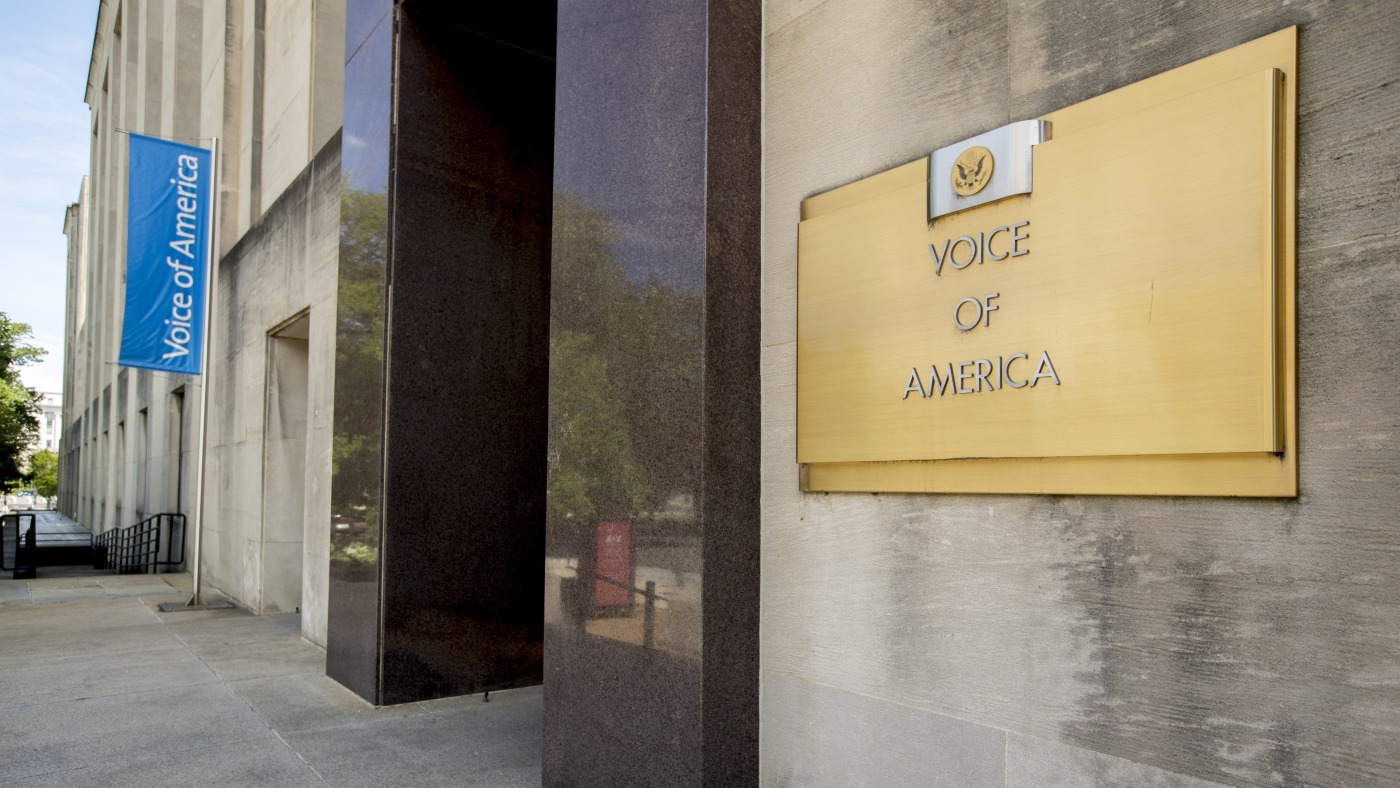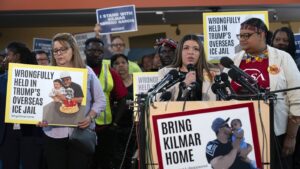Broadcasting Shakeup at Voice of America and U.S.-Funded Networks
The media landscape for U.S.-funded international broadcasters has been dramatically altered following a late-night decree by President Trump. This decision has led to sweeping changes affecting the Voice of America (VOA) and its sister networks, leaving their future uncertain.

President Trump’s late-night decree Friday led to orders gutting the Voice of America and other U.S.-funded international broadcasters.
Andrew Harnik/AP
hide caption
toggle caption
Andrew Harnik/AP
Today, journalists arrived at the Voice of America headquarters only to find themselves locked out as federal officials initiated indefinite mass suspensions.
More than 1,000 full-time staff at VOA and the Office for Cuba Broadcasting were affected by this sweeping move, driven by a directive from President Trump to eliminate activities not required by law.
Under the leadership of Trump appointees, contracts with privately funded broadcasters like Radio Free Europe/Radio Liberty, Radio Free Asia, and the Middle East Broadcast Networks have been terminated.
The termination notices, reviewed by NPR, were signed by Trump’s senior adviser Kari Lake, who does not have statutory authority for such actions. Former USAGM CFO Grant Turner described the day as “Bloody Saturday,” lamenting the impact on networks that shared important news and American values worldwide.
“From what I hear, this is shaping up to be a really sad day,” Turner said. “It took decades to build this goodwill and an audience of hundreds of millions every week. Seeing arsonists just set fire to it all is awful.”
VOA Director Michael Abramowitz, also placed on indefinite paid leave, declined to comment. NPR’s investigations, involving interviews with 16 current and former employees, revealed that the USAGM and the White House did not respond to requests for comment.
The networks, which reach 420 million people in 63 languages across more than 100 countries weekly, are funded entirely by federal dollars. They serve the mission of providing news and cultural programming to regions where free press is under threat, embodying soft diplomacy and modeling independent journalism.
Despite criticisms from the Trump administration, the networks have historically received bipartisan support. U.S. Rep. Michael McCaul emphasized their role in delivering unfiltered information, particularly in regions like China.
Employees at USAGM were notified of indefinite leave with “full pay and benefits until otherwise notified,” and instructed to cease all work activities. Meanwhile, the agency has faced financial constraints, with contracts cut with major news services, and funds withheld, affecting operational capacity.
Kari Lake, in a video, criticized the spending on the agency’s new headquarters. However, former CFO Turner countered her claims, stating that the lease agreement was financially beneficial, saving the government $150 million over 15 years.
The VOA and USAGM’s future remain uncertain amid these significant changes, with the agency’s ability to function under increasing pressure.






